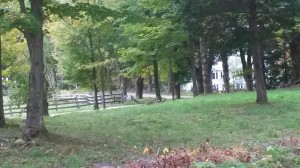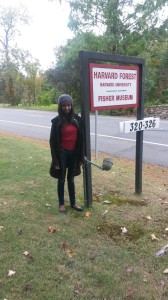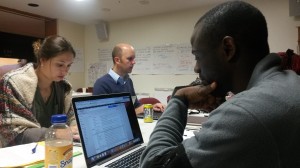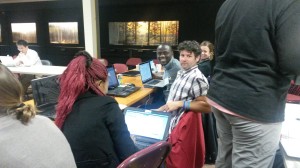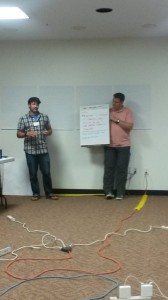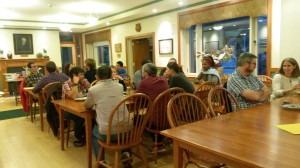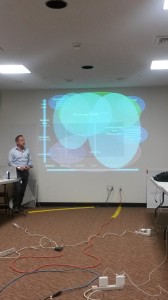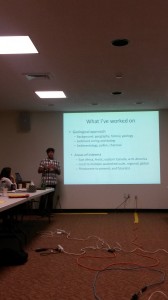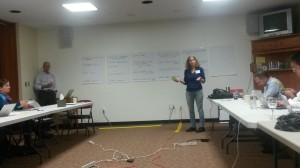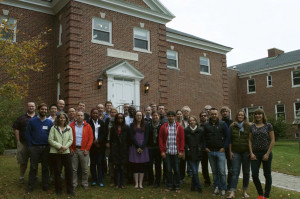
Paleofire: Data-Model Comparisons for the Past Millennium participants outside Fisher Museum, Harvard Forest.
The Paleofire: Data-Model Comparisons for the Past Millennium workshop was organized by the Global Paleofire Working Group (GPWG) Workshop and held at the Harvard Forest – http://harvardforest.fas.harvard.edu/ between September 29 and October 2, 2015. The Global Palaeofire Working Group (GPWG) oversees the Global Charcoal Dataset (GCD), was developed to facilitate research on fire in the Earth system. Our group provided the first reconstructions of global biomass burning on centennial to millennial time scales. As the database continues to grow, we are developing a new online interface to access the data, and more scientific analyses are becoming possible. This workshop will focus on comparing GCD analyses with output from global fire models of varying complexity, Earth system models with fire modules, and emissions models, and fire data from a variety of archives, including ice cores, fire scars, and historical records from the past millennium. During the 4 days over 30 participants from more than 9 countries made progress on the workshop objectives:
- Review a) current data inventory (GCDv4 site lists and maps for past millennium, past 200 years, and past 50 years); b) current paleo capabilities of available fire models; and c) global and regional non-charcoal fire & emissions data > 50 years.
- Present current tools for GCD analysis and gridded map-making.
- Use data-model comparisons to better understand variability in biomass burning during the past millennium.
- Test hypotheses about natural and human impacts on fire activity during the past millennium.
- Discuss the development of Fire-Human-Biosphere Interactions (Fire HuB).
This led to the formation of smaller new groups working on different activities to produce reports, protocols and manuscripts. The Workshop provided and invaluable opportunity to communicate with international researchers working on topics related to paleofire research and new collaborations between data producers and modelers.
